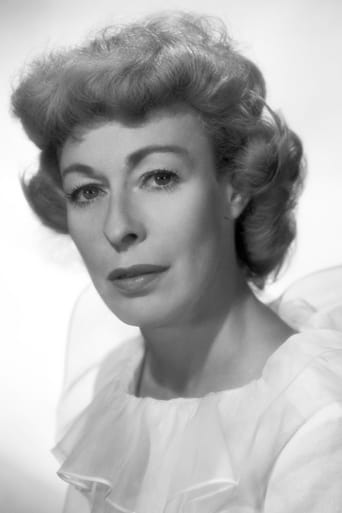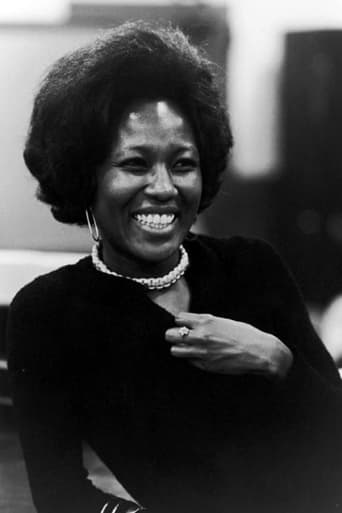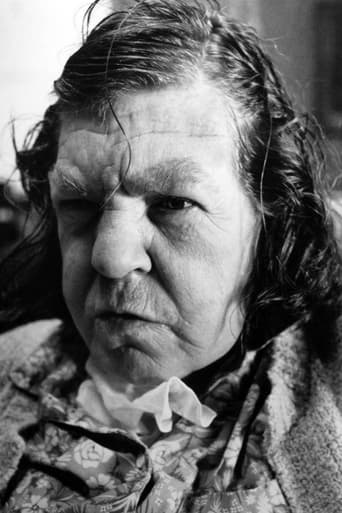Stometer
Save your money for something good and enjoyable
Lumsdal
Good , But It Is Overrated By Some
TrueHello
Fun premise, good actors, bad writing. This film seemed to have potential at the beginning but it quickly devolves into a trite action film. Ultimately it's very boring.
Billy Ollie
Through painfully honest and emotional moments, the movie becomes irresistibly relatable
MartinHafer
When the film begins, Adele (Bette Davis) is taking in a VERY unusual sort of border--a teen* who is being placed in her care for probation! This old white lady is doing this because she needs the income and her new roommate, B.T. (Ernest Harden, Jr.) is about as much unlike her as possible. He's a black street-wise teenager and their personalities are certainly different. While I would never call Adele tender towards B.T., she does later come to really care for the kid and pushes him to be a better person. She is horrified when B.T. takes up boxing...but it does help pay the bills. Later, after she's helped B.T. to get on his feet, it's now turn for him to help her when she is dispossessed from her home...but Adele has a very hard time asking for or accepting help. The film is not perfect--especially since I think they could have worked a bit more at relationship building. But the story is unique and it's nice to see Davis in one of her nice, non-cringeworthy** roles later in her career.*B.T. is supposed to be 16. The actor was 28 and looked at the least, about 23. This was bad casting or they should have just had the character be in his 20s.**Late in their careers, Bette Davis and her arch-rival, Joan Crawford, would appear in ANYTHING as long as the check cleared. Both claimed they needed the money but based on some of these films I have a hard time believing they needed money THAT badly.
mark.waltz
"White people don't know what good is", wise-cracking black teenager Ernest Harden Jr. tells Bette Davis when she takes him into her home to earn extra income in helping juvenile delinquents stay off the streets. At first, there's a definite wariness between the two, but it quickly dissolves when she decides to teach him how to read. It is obvious that she sees him more than just a troublesome black teen and wants to believe in something. He has ambitions of becoming a professional fighter which she at first tries to convince him to change his goals. But when a sudden argument erupts between the two over his future, she comes to the belief that he robbed her and is forced out onto the street after being evicted. Briefly helped by bag lady Eileen Heckart, she becomes very sick but Harden shows up in the nick of time to help her out."How ya doin', white mama?", he asks her during a practice bout. "Better than you are!", she responds as only Bette Davis could. She becomes very fond of him and takes care of him when a tough bag lady (Anne Ramsey of "Throw Mama From the Train") stabs him. It's very touching to see both of their hearts opening to each other, to cross the racial barriers that society both fights for and against. It's not only racial barriers, but age barriers and educational barriers as well. It's no longer about a kind white lady taking in someone from the other side of the society spectrum because they believe it is their duty or need the money, but doing it because it's right. "You can be anything you want to be if you work hard at it", she tells him, teaching him the first values he's ever known in his life and more importantly, giving him an inside scoop on what it is like to have dignity.This is more than just trying to raise the status of white folks helping out black folks to try and make up for the past (it's time to move on and find new battles to strike out at), but two human beings helping each other during the times of crisis. Made during very troublesome racial times, this dared to show that the races can co-exist and come to love each other beyond what society claims is right and wrong, black and white or rich or poor. The final fight scene shows Davis feeling each hit that Harden takes. Davis is riveting in a scene where she begins calling all these different New York City agencies to prevent herself from being evicted and ends up getting the typical city hall run-around.I didn't like the whole twist of the furniture being stolen as it left Davis with distrust and pretty much gave her no other option than being on the street, but other than that little plot twist, I think this is a practically perfect T.V. movie with excellent performances that truly stands the test of time and hopefully will wake people up to seeing race relationships in a new light rather than sweeping down the drain. Excellent New York City location footage is another plus!
bkoganbing
An unusual tale of friendship is told in White Mama where Bette Davis plays the title role and Ernest Harden, Jr. is the one who's in need of one of any pigmentation. If you can imagine Bette Davis's character from The Catered Affair some 20 years after that film came out. Her children are married and gone, her husband has died some time ago and she's having trouble making ends meet, but won't go on welfare. But she will take in a troubled youth and supervise his probation until he's of age.Davis and Harden are one unlikely pair to bond and not just because of race. But strangely enough they do and prove to be of invaluable assistance in moments of crisis.No bigger crisis for Davis can be in that she lost her apartment she cannot find a place to live and is forced to become a bag lady. Harden happens to know them from the street and they're an interesting new circle of friends, Eileen Heckart and Virginia Capers being two of them. And there's a deadly Anne Ramsey who carries a switchblade for protection and knows how to use it.Davis and Harden have a real good chemistry between them and that's half the enjoyment of watching White Mama. Those bag ladies are good support and I also can't forget Lurene Tuttle her long time neighbor in that apartment building she lives in who says she's found a good living situation with one of her children. No matter how good it is it ain't the same as being on your own.I was lucky to see this on YouTube, hopefully it will come out on DVD at some point.
mikhail080
This movie would really qualify as one of Bette Davis's last good roles. In "White Mama", she plays down-on-her-luck widow Adele Malone, who takes in a teenage foster child to help cover her expenses. This boy happens to be a sixteen year old, street-wise African-American boy called B.T. Surprisingly, he is played convincingly by 28 year-old Ernest Harden Jr, in a striking performance which should have garnered more attention.The script avoids becoming predictable, and the relationship between Davis and Harden actually develops believably and logically, although any attempts to address racial issues seem to play a minor role in the film. And director Jackie Cooper manages to present a harrowing image of life on the street in New York City, with loud-mouthed thugs and destitute bag ladies populating the screen.Bette Davis does nicely with the material, evoking sympathy by not appearing weepy or maudlin, which might be the case with a lesser actress. She remained a magnetic presence on the screen, and it's great fun to watch her interact with the talented young Harden, who matched her at every turn. But when she raises her voice, Davis tends to be a bit shrill, although it may very well be appropriate to her character. And there's one very amusing scene in which Mrs. Malone attempts to teach her young ward how to read, and soon becomes scandalized by his taste in "literature."Certainly there are some nagging questions left unanswered. Like as to why Mrs. Malone remains estranged from her daughter, and not even certain of her whereabouts? Her explanation that her daughter "married an Army man," rings hollow, and really offers no valid reason. This surely implies some sort of dysfunctional relationship, especially considering that Mrs. Malone couldn't even contact her daughter to inform her of Mr. Malone's death.We witness a great extended segment midway through in which Mrs. Malone is given a lesson in life-on-the-street from Eileen Heckart's Three Bag Lady. Unflinching and unsympathetic, these scenes remain compelling and very relevant today. And then there's Virginia Capers rounding out the cast as racially-insensitively-named (but sweet) street person, "Gorilla Sydney." There is also a nice turn by veteran actor Lurene Tuttle as a flustered neighbor of Davis, and a nasty little cameo from Anne Ramsay as the unpredictable and explosive bag lady "Heavy Charm."I gave this little movie ten stars simply because I enjoyed the performances that much, and would recommend it highly to fans of either Davis or 80's flicks. For those who are not ardent Bette Davis admirers, the proceedings here might become a tad tiresome.All that said, "White Mama," although it's burdened with an awkward title, still delivers some hard-hitting and relevant drama featuring the great Bette Davis in a role worthy of her talents.





